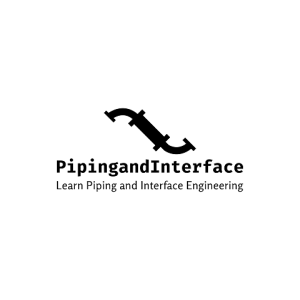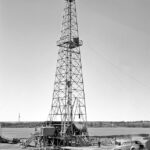The American Petroleum Institute (API), established about a century ago, has been an influential figure in the oil and gas industry. This organization has a rich history marked by considerable milestones and evolution. As an industry cornerstone, API’s mission encompasses a broad range of activities from policy advocacy and research to the establishment of industry standards. The API’s impact is most prominent within the oil and gas sector, where its contributions are critical in shaping the industry’s trajectory.
History of the American Petroleum Institute
Formation and early history of the American Petroleum Institute
The American Petroleum Institute (API) was established in 1919, nearly a decade after the U.S. oil industry came into being. The establishment was motivated by the need for standardization and safety checks in a rapidly growing industry. API was created by a group of oil company representatives who recognized the importance of maintaining industry-wide safety (especially in the wake of a catastrophic refinery accident in 1917) and of providing a unified voice to the nascent industry.
Growth and evolution of the American Petroleum Institute
Over time, API extended its focus beyond safety and standards, evolving into a leading industry alliance that provided valuable research, statistics, advocacy, and even education for industry professionals. One of its significant historical events was the development of the API gravity scale in the 1920s, which continues to be a universally recognized measure for the weight of crude oil and petroleum liquids. Moreover, during the Second World War, API was essential in coordinating the industry’s contribution to the war effort, for which it received the Naval Public Service Medal.
The American Petroleum Institute (API) has been an instrumental figure in shaping the oil and natural gas industry since the 20th century. In response to increasing environmental awareness and regulatory scrutiny, the API expanded its focus to encompass ecological guidelines. In the ensuing decades, the organization reinforced its industry representation through the development of fresh standards, safety augmentation, trade policy promotion, and claims for the energy industry’s role in the power transition. It stands today as a trusted authority, emphasizing the oil and gas industry’s pivotal role in the worldwide energy sector.
Mission and Functions of API
The Mission of the American Petroleum Institute (API)
The API is intensely focused on enhancing safety within the petroleum industry, while also providing influential public policy leadership. The organization’s mission is to foster growth and excellence in the oil and natural gas sector. This is achieved by advocating innovative strategies, encouraging optimal operations, and supporting responsible policy-making. A significant part of this mission is the commitment to using resources in a secure, efficient, and environmentally friendly manner. The API works diligently to share the advancements and benefits derived from the industry’s innovations with the public, influence policy decisions, and enlighten the media.
What is the American Petroleum Institute (API)?
As an integral part of the oil and natural gas industry, the American Petroleum Institute (API) works as a platform for industry members to unite towards common aims and share knowledge. API is tasked with performing research pertinent to the petroleum industry and orchestrating credible industry standards that encompass all aspects of production, refining, and delivering oil and gas. Seizing the role of an advocate, API also champions forward-thinking policies and regulations on behalf of the industry, cementing oil and gas as vital components in the global energy framework. Furthermore, API delivers regular statistical reports and trend analyses on the industry, augmenting the decision-making process for businesses and policymakers.

API’s Influence on the Oil and Gas Industry
The Impact of API’s Standards within the Oil and Gas Industry
API’s strong influence within the oil and gas sector stems from its rigorous and well-defined technical standards. These standards, ranging across diverse operations from production and refining to distribution and safety protocols, offer structure and guidance to the industry. With global recognition and implementation, API guides industry activities toward maintaining high levels of quality, reliability, and safety. Companies that are compliant with API’s standards are generally seen as committed to superior performance and safety levels. This adherence not only enhances their market credibility but also signifies their commitment to excellence for all their stakeholders.
An Overview of API’s Policies, Advocacy, and Services
The American Petroleum Institute (API) serves as much more than just a standard-setting body for the oil and gas industry. It actively participates in policy advocacy, engaging with lawmakers and guiding regulatory decisions that affect this sector. Issues ranging from environmental laws to tax codes fall within API’s sphere of influence, enabling it to safeguard the industry’s interests and guide prospective energy-related legislative measures. To foster a robust, competent workforce, API also provides certification and training programs. These initiatives have greatly contributed to the improvement of professional standards and operational efficiency within the industry. Given its far-reaching influence, the API plays a critical role in directing the course of the oil and gas sector.
API Standards
API standards refer to a set of guidelines, specifications, and best practices established by the American Petroleum Institute (API) to ensure safety, reliability, and consistency in the oil and gas industry. These standards cover various aspects, including equipment design, production, transportation, and environmental protection. They are developed by collaborating with industry experts, regulators, and other stakeholders. Compliance with API standards is essential to maintain the integrity and efficiency of operations within the oil and gas sector.
Here is a list of some important API standards for the oil and gas industries:
- API 5L: Specification for Line Pipe – This standard covers the requirements for steel pipe used in transporting fluids and gases in the oil and gas industry.
- API 6A: Specification for Wellhead and Christmas Tree Equipment – This standard provides guidelines for the design, manufacturing, and testing of wellhead and Christmas tree equipment.
- API 510: Pressure Vessel Inspection Code – This standard outlines the requirements for the inspection, repair, alteration, and rerating of pressure vessels.
- API 570: Piping Inspection Code – This standard focuses on the inspection, repair, alteration, and rerating of in-service piping systems.
- API 650: Welded Tanks for Oil Storage – This standard covers the design, fabrication, installation, and inspection of welded storage tanks for oil and petroleum products.
- API 653: Tank Inspection, Repair, Alteration, and Reconstruction – This standard guides the inspection, repair, alteration, and reconstruction of above-ground storage tanks.
- API 2000: Venting Atmospheric and Low-Pressure Storage Tanks – This standard provides recommendations for the design, installation, and maintenance of venting systems for storage tanks.
- API 12D: Field-Welded Tanks for Storage of Production Liquids – This standard covers the design, fabrication, and construction of field-welded storage tanks.
- API RP 14C: Recommended Practice for Analysis, Design, Installation, and Testing of Basic Surface Safety Systems for Offshore Production Platforms – This document provides guidelines for safety systems on offshore production platforms.
- API RP 14E: Recommended Practice for Design and Installation of Offshore Production Platform Piping Systems – This standard covers the design and installation of piping systems on offshore production platforms.
- API RP 14F: Recommended Practice for Design, Installation, and Maintenance of Electrical Systems for Fixed and Floating Offshore Petroleum Facilities for Unclassified and Class I, Division 1, and Division 2 Locations – This document provides guidelines for electrical systems on offshore facilities.
- API RP 75: Recommended Practice for Development of a Safety and Environmental Management Program for Offshore Operations and Facilities – This standard outlines the requirements for safety and environmental management programs in offshore operations.
These are just a few examples of the many API standards that exist within the oil and gas industry. The API continually updates and develops new standards to address the evolving needs and challenges of the sector.
Controversies and Critiques of API
Drawing Attention: Controversies and Criticisms of API
The American Petroleum Institute (API) has not been without controversy, most notably concerning its stance on climate change. It has faced backlash from environmental advocates due to past actions seemingly intended to foster doubt about human-induced global warming and weaken support for regulatory action. A notable instance was in the late 1990s when the API financed a campaign, the “Global Climate Science Communications Plan.” The campaign’s goal was to convince the public of uncertainty within the scientific consensus on climate change, an attempt perceived by some as undermining the issue’s seriousness. However, it appears that the API has adjusted its position on climate change in recent years, now acknowledging its significant impact.
Ethical Issues and API’s Response
Another controversial topic that the API has faced is ethics and transparency. Critics argue that API has been influencing policy to disproportionately benefit the oil and gas industries at the expense of the general public. For example, the API has been criticized for lobbying against stricter environmental regulations that could potentially reduce the profitability of its member companies. In trying to address these issues, the API has claimed that it strives to balance the needs of the industry with environmental sustainability. However, these claims continue to face skepticism, particularly from environmental groups.
Additionally, the API has faced criticism for its adoption of voluntary industry standards instead of stricter safety regulations. The Deepwater Horizon oil spill in 2010 revealed that API’s recommended practices can sometimes fall short of what’s necessary to prevent catastrophic accidents. The API responded by stepping up their safety initiatives but critics still maintain that tougher regulations are necessary. The API’s ability to both create industry standards and lobby against government regulation has made it a subject of ongoing debate and criticism.
While the American Petroleum Institute has played an indispensable role in the development and growth of the industry, the organization is not without controversy. Criticisms of API’s actions and policies shift the focus on the ethics of their efforts. Notably, their responses to these challenges shed light on the organization’s approach to sustainable practices and transparency. Evidently, API is much more than a representative body – it is a key player in the journey of the oil and gas industry, maintaining an enduring legacy lined with achievements, challenges, and lessons for future growth.






